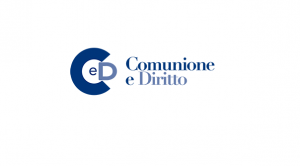
Watch
The story of another pandemic: the many ‘faces’ of corruption
By Adriana Cosseddu
There are silences in search of being heard that we do not always manage to perceive: they are the mute “voices” of many, many, victims of policies and systems that have flourished where corruption, from individual illicit behaviour, has become a widespread ‘phenomenon’ with a high social and economic cost. Thus, other silences are added to the former, but this time of complicity, and on the part of international bodies as well.
Corruption is a hidden phenomenon, difficult to bring to light, which has travelled through human history and today has followed the paths of globalisation; and, paradoxically, it unites countries from the North to the South of the world. With its special interests, it insinuates itself into the governance of cities and into politics, but not only: it becomes a legal and cultural problem. In the face of its spread, today there is talk at a national and international level of a “phenomenon” and of a “social evil”, to the point of saying that “It is the lie of seeking profit for oneself or one’s own group with only the appearance of serving society. It is the destruction of the social fabric behind the semblance of fulfilling the law.” [i], is to steal the future and hope from young people.
We speak of a very high amount of “black money”, hidden from sight, which originates from a mixture of interests of various kinds, earned through exchanges of favours and conveniences. It manifests itself through the logic of an illicit exchange between an act of a public or private office or power and an offer or loan of money or advantage. Thus, the person who holds a public office will benefit from the illegal exploitation of their office or function, or may urge the private citizen to pay money. To fulfill their duty, they will ask for an amount to be paid, or they may even go as far as to act against their duties in exchange for money. Today this phenomenon can even become a sort of political-business corruption, due to “business relations” between public and private entrepreneurs.
The corruptive pact is difficult to ascertain: it does not take place in front of witnesses, silence envelops the agreements in a “bond of secrecy”, which none of the parties has an interest in bringing to light; and the bribes paid in the shadows and in concealment, cannot be traced. But if this phenomenon is defined as “bureaucratic corruption”, today the network of “exchanges” in the form of “business” is the place where not just trust, but the criteria of honesty and fairness are also lost. Moreover, if institutional and political bodies are considered corrupt, the citizen will not find a reason not to pursue his or her own particular interest either, with a deep wound in relations on all levels of society.
Who benefits and who pays the costs
In an economy of favours and influences, the relationship between citizens and institutions is consequently altered and a ‘grey zone’ is created where crime can also flourish, increasing the waste of public money, and elevating costs, even to the realization of projects that are never completed, but can be a source of considerable profits for those who manage them. How can we not understand that once corruption becomes systematic, it will not end up generating a culture of widespread illegality, serving only personal or partial interests, to the point of becoming a “social evil”? Today Pope Francis warns that this is a tearing, a breaking of our relationships that are the pillars of coexistence. In Africa they talk about a social pandemic: the courts, the police, the whole administration, and commerce are all compromised, and young people and the most knowledgeable minds leave their land, increasing the flow of migrants to Europe: they “emigrate to hope”. But what is the price of this?
The natural resources are immense, it’s enough to think of the Democratic Republic of Congo: diamonds, gold, oil, uranium, cobalt, copper, zinc, and coltan: all “strategic” to the optimization of the technology of mobile phones and for the production of space material, planes, fiber optic consoles[ii]; not to mention agriculture with the coffee export. And yet, some benefit so much from this richness through the concessions and contracts for mineral extraction to multinationals, that they even enter into a game of interests, compromises, compensations, and arrangements, making corruption an “institutional system”. But there is no shortage of young people who have the courage to make their voices heard in order to undertake a “cultural rearmament”, necessary in the face of the growth of this virus, which takes away wealth to multiply infinite poverty!
It is a system that generates exclusion, because instead of offering genuine service to its citizens, the citizens themselves have to pay a price for their needs to be satisfied by a private or public institution, and this mortifies the person and their dignity, denying rights, while those indifferent to every criteria of justice gain all the advantages.
Perhaps the victims remain invisible or irrelevant, so much so that some even speak of corruption as a victimless crime; but how can we not notice its infinite faces? It is present in the reality of honest citizens, of the poor and excluded, of those who are forgotten and discarded, perhaps waiting for a practice to be erased, for the recognition of their right to food, water, housing, and a free and dignified existence? How many modalities can be listed at a political, judicial, and economic level!
One thing, however, should not be forgotten or underestimated: there are many occasions in which one is also induced, if not forced, to corruption in face of a method or custom which seems to offer no alternative. How often does it happen that a required procedure “has a price” to be paid by the citizen who is unarmed, or constrained in his or her own need to survive. Let us think of the activities of a small/medium enterprise in a “sick capitalism”! The entire life of a society is often spoiled by an oppressive and unjust bureaucracy, that is a source of unjust inequality, to the point of breaking the relationships between people, and altering the rules of the market and work.
What are the anti-corruption instruments?
The law is not absent and there is no lack of protocols and conventions in the fight against corruption also at an international level: already in 1997, the OECD Convention was signed in Paris on combating bribery of foreign public officials in international business transactions; then, the Merida Convention, adopted on 31 October 2003 by the UN General Assembly (known as UNCAC – United Nations Convention Against Corruption), which also deals with internal corruption in the various countries, and calls for its indictment through various methods. There are interventions at a European Union level, but also at the Council of Europe, with its two Conventions adopted in the criminal (27.01.1999); and in the civil field (4.11.1999), which provide for a verification mechanism entrusted to the Group of States against Corruption (GRECO), composed of the representatives of the member states. These conventions firmly state the threat posed by corruption to the rule of law and to democracy itself, and to human rights, committed by those who abuse or exploit their power for a personal gain or advantage or for that of others. A non-governmental organisation, Transparency International, was set up in 1993. It is a global anti-corruption organisation that measures the perception of corruption (CPI, Corruption Perception Index) in the public sector and in politics in 180 countries of the world.
What is missing? If, as the Argentinean historian, Leόn Pomer states, the “world of corruption is a cultural world”, legality must also become culture as a value for coexistence, in a common respect of the rules by citizens and governors; in a legality for the protection of the person, and for the pursuit of the common good. Jurist Gustavo Zagrebelsky[iii] explains that there is a “duty as a response to a call to responsibility towards the condition of one’s contemporaries and towards those who must be able to come after us. Duties towards our contemporaries are duties of justice; while duties towards those who will follow us are duties towards humanity”. Perhaps today it is no longer enough to denounce an economic and political “malfeasance”, we need to enter the “plague” that generates degradation, and “regenerate” the social fabric.
The word to the citizen
Ramón Soriano writes: “The key to change is more in the hands of the citizen than in those of their politicians.” [iv] But is there a model to be proposed today in the face of the risk for so many to allow themselves to be corrupted?
The President of the United States, John F. Kennedy said: « Ask not what your country can do for you – ask what you can do for your country». Faced with a social plague that goes as far as the “fraud of democracy”, it is necessary to renew relations from the individualist to the solidarity dimension.
There are some cultural models:
- Culture of service, to overcome personal and group interests
- culture of fraternity, for inclusive relations in full recognition of the dignity of others
- culture of prevention, working for the common good to avoid favours and partiality.
Almost like lights at the end of the tunnel, new challenges await us:
Transparency, in a relationship of reciprocity between the Public Administration and citizens who are the recipients of its activities, over which they can exercise due control;
Impartiality, in a relationship without privileges and preferences;
loyalty and competence, to train young people in their studies who know how to recognize the primacy of law as the instrument of equality and freedom in a horizon of communion in living together.
It is also from here that we would like to construct the building of US, and we would like this mentality to inhabit our cities and through its weaving of a network of relationships, have the capacity to renew them.
Even a pandemic can make us better, if we have the courage to abandon all indifference and let ourselves be questioned by the words spoken by Chiara Lubich at the Press Conference in the Calvin Auditorium in Geneva on 25 October 2002: “the future of the world, its capacity to progress, to find solutions to conflicts and crises, depends uniquely on the awareness of individuals and the commitment of people. We cannot rely solely on the institutions, but we must offer, through the institutions, some moments and opportunities to develop these convictions”.
It is a commitment placed in our hands, as Pope Francis confirms nowadays: “We, Christians and non-Christians, are snowflakes but if we unite we can become an avalanche: a strong and constructive movement. This is the new humanism […],we need cooperation from everyone according to their possibilities, their talents, and their creativity.”[v].
[i] Cf. B. Forte, Corruzione, la menzogna che ruba il futuro ai giovani, (Corruption, the lie that steals the future from young people) in Il Sole 24ore, 25 June 2017.
[ii] Study of R. Takougang, E se la corruzione fosse la radice di tutti i problemi dell’Africa? (What if corruption is the root of all Africa’s problems?), in Nuova Umanità, 228/2017, p. 51ss.
[iii] G. Zagrebelsky, Diritti per forza (Rights by force), Einaudi, Torino, 2017, p. 94. For the previous citation of L. Pomer, cf. Il costo della corruzione pubblica e privata. Le idee chiave, di Myrdal, Buchanan, Becker e North, (The cost of public and private corruption. Key ideas, by Myrdal, Buchanan, Becker and North) RBA, Milano, 2017, p. 84.
[iv] Taken from Il costo della corruzione pubblica e privata,( The cost of public and private corruption) cit., p. 136; and therein, p. 13, citation by J. Kennedy.
[v] By Pope Francis, in the Foreword of P.K.A. Turkson – V.V. Alberti, Corrosione. Combattere la corruzione nella Chiesa e nella società, (Corrosion. Fighting corruption in the Church and society) Rizzoli, Milano, 2017, pp. 9-10.
Photo of Ivana Divišová on Pixabay
Source:






